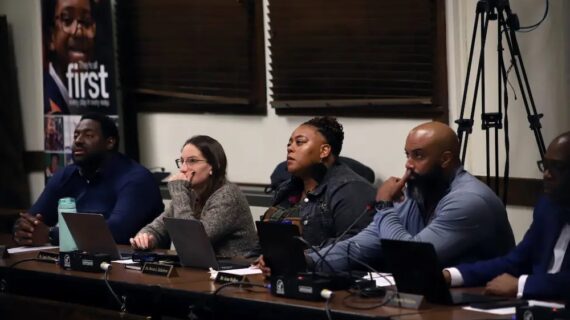
CDC director Dr. Mandy Cohen’s advice to students for health and life
Photo above by styvo Putra Sid via Unsplash.
School is the place where kids and teens learn, study, make friends, play sports, attend clubs, discover interests. Ultimately, it’s the place where we start to discover who we are. But school also comes with many strains, physical and mental.
I recently interviewed Dr. Mandy Cohen, director of the Centers for Disease Control, about maintaining good physical and mental health. As a high schooler, I asked questions focused on how teens like me, with our crammed schedules filled with classes, studying, and extracurriculars, can maintain a healthy lifestyle that supports both our physical and mental health.
Dr. Cohen’s advice included incorporating healthy habits into the things we already do (think: taking walks while hanging out with friends, choosing healthy options at lunch, studying outside), along with getting enough nutrition and sleep, disengaging from social media and forming more personal connections in real life.
She also shared these tips for teen life:
Build resilience through connections: “Life is hard,” Dr. Cohen said. “ So it’s a matter of how we are resilient through those hard things that’s important, and you have to practice being resilient. So that’s what being a teenager is about: practicing what we want our life to be like in the future and practicing resilience.”
She explained that resilience doesn’t have to be developed all on your own. It’s achieved through connections: confiding in family, friends and the community. Those supportive relationships can help us bounce back when difficult things happen.
Growing these connections that help build resilience is especially important for teenagers. Teenage years are when many habits and mindsets are solidified. So, it’s important to build the habit of connecting with others early on, so we’ve got that support and resilience to lean on when faced with larger problems in the future.
Developing resilience will help create stronger mental health, making it easier to deal with everyday stressors and bigger problems.
Get comfortable with being uncomfortable: “We’re always seeking comfort, but actually the way you grow, the way you learn, the way you get great experiences is to actually push beyond your comfort zone. Being uncomfortable is okay.” Dr. Cohen was clear: Being uncomfortable doesn’t mean straining your mental health. It’s about feeling a bit challenged, but taking a breath and reminding yourself that you are just fine. “Being uncomfortable,” she said, “is a part of growing. That is a part of life.”
Dr. Cohen makes a very important point: As high schoolers, many of us are very focused on being perfect – getting the best grades, doing as many extracurriculars as we can, maintaining a good social life – that we forget that the real purpose of high school is to put ourselves in those uncomfortable situations to explore, make mistakes, and learn and grow through these experiences.
After receiving Dr. Cohen’s advice, I’ve been more active in class. I’ve been answering questions even though I’m not sure about my answer, using my free time to connect with more peers, and enjoying my high school experience a lot more overall.
As the school year continues, encourage the teens in your life to keep Dr. Cohen’s advice in mind: Make sure to look for community in the people physically around us, build resilience, and use high school as the place to explore and learn.






